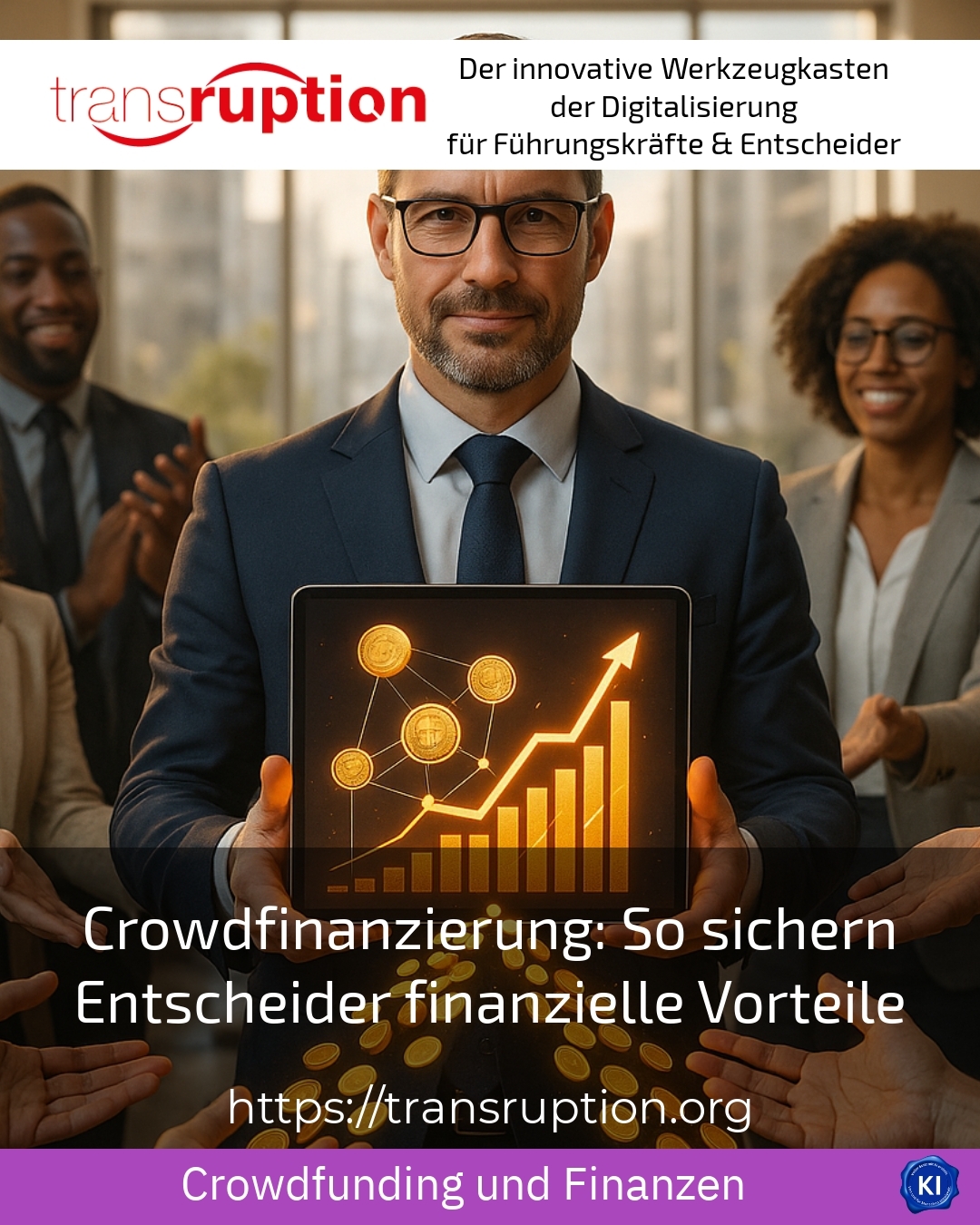Crowdfunding has developed into one of the most exciting forms of financing that decision-makers can use to secure financial benefits. It makes it possible to pool capital from many small contributions from supporters and thus realise projects independently of traditional banks. This not only opens up new sources of money, but also opportunities to gather a committed community around your own business idea.
Crowdfunding as an innovative source of capital
Decision-makers often report that crowdfunding helps to overcome investment barriers when traditional forms of financing are not sufficient or appear too restrictive. Thanks to the direct approach to a large public, companies can raise their profile and at the same time get in touch with potential customers. In this way, the market is tested before the official product launch and financial risks are reduced. This increases planning security and often leads to a more sustainable financing solution.
In the cultural and creative industries, many project managers use crowdfunding to realise innovative art productions or media projects. Start-ups in the technology sector also use crowdfunding platforms to find investors who not only provide financial resources but also valuable feedback. Another sector is social initiatives, which often work successfully with donation-based models.
BEST PRACTICE at the customer (name hidden due to NDA contract) A medium-sized manufacturer of sustainable packaging was able to pilot its product line with the help of crowdfunding and collect valuable customer requests at the same time. The campaign not only generated the necessary capital, but also created a loyal community of supporters.
How decision-makers utilise financial advantages with crowdfunding
The greatest strength of crowdfunding is that it enables companies to diversify their sources of capital. Unlike bank loans, no extensive collateral is required and there is no obligation to give up company shares - especially in the case of reward-based crowdfunding. This allows initiators to retain control over their company and avoid high interest charges.
An example from the field of product development shows that a start-up in the technology sector not only financed its growth phase via an equity crowdfunding campaign, but also gained more stability and room for manoeuvre thanks to the broader investor base.
In the fashion industry, designers benefit from crowdfunding because it allows them to finance collections in advance and obtain customer feedback at the same time. This strengthens their market position and allows them to react more flexibly to trends.
BEST PRACTICE at the customer (name hidden due to NDA contract) A medium-sized software company used crowdfunding to launch a new tool on the market. Thanks to regular updates, the company was able to maintain constant support from the crowd and manage further development in an agile manner as required.
Practical tips for a successful crowdfunding campaign
Preparing a crowdfunding campaign is crucial in order to maximise the financial benefits. Decision-makers should choose the right platform that suits the target group - such as Startnext for creative projects or Indiegogo for technological innovations.
Storytelling plays a central role: an authentic and well-told story attracts supporters. Clear goals and transparent communication create trust. It is also important to offer attractive rewards or exclusive offers to motivate the crowd.
The targeted use of social media and email marketing supports the success of the campaign in the long term. Many clients report positive effects through early community building, which serves as the basis for long-term customer relationships after the successful term.
BEST PRACTICE at the customer (name hidden due to NDA contract) Thanks to a skilful combination of video pitch, social media promotion and a crowdfunding offer, a regional cultural project was able to completely cover its financing requirements within a few weeks and significantly increase local awareness.
Crowdfunding as a sustainable financing strategy
Crowdfunding not only opens up short-term financing options, but also offers a sustainable strategy for developing and strengthening companies and projects. Financial advantages arise from the often faster procurement of capital, less dependence on individual investors and an active community of supporters.
Particularly in sectors with high innovation cycles, such as the technology or creative industries, crowdfunding helps to validate the business idea and at the same time increases the momentum for market entry.
Through regular updates and direct dialogue with supporters, decision-makers can obtain feedback at an early stage and improve their strategies. Crowdfunding also supports the development of resilient networks that promise long-term success.
My analysis
Crowdfunding offers decision-makers a wide range of opportunities to achieve financial benefits and successfully realise projects. Independence from traditional investors, the opportunity to raise capital quickly and the creation of a community are key advantages. At the same time, careful preparation is necessary in order to optimally utilise the potential. We are happy to support decision-makers who see crowdfunding as a strategic instrument in successfully realising their projects.
Further links from the text above:
Advantages of crowdfunding - Gründer.de
Crowdfunding: How crowdfunding works - Invesdor
Equity crowdfunding: opportunities and risks - Shopify
What is crowdfunding? Definition & advantages - Q-fi
For more information and if you have any questions, please contact Contact us or read more blog posts on the topic TRANSRUPTION here.
















